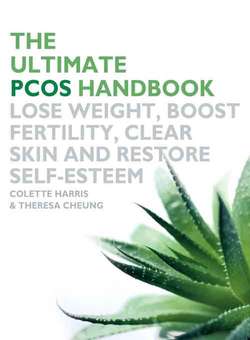Читать книгу The Ultimate PCOS Handbook: Lose weight, boost fertility, clear skin and restore self-esteem - Theresa Cheung - Страница 88
HOW?
ОглавлениеToo much protein isn’t wise if you have PCOS because it leaves less room for all the other nutrient-rich carbohydrates and fats that we need to balance our blood sugar and boost our energy. So we’re not recommending a high-protein diet here – especially as it can lead to an increased risk of diabetes and heart disease and perhaps trigger insulin resistance. That’s why we recommend that you eat some good-quality protein with every meal while making sure you also eat the right kind of nutritious and healthy carbs and fats as part of a varied and balanced diet. Include a range of low-fat protein in your diet and make sure that you have a serving with every meal – try low-fat cheese, low-fat milk, low-fat yoghurt, lean meat, poultry, seafood, fish, nuts and seeds.
Other great sources of protein include soybeans, peas, kidney beans, wheat germ, lima beans, black-eyed peas, chickpeas, lentils, black beans, soy products, tofu products, quinoa (a seed that you cook like couscous or rice), spirulina (a green powdered algae you get from health stores to sprinkle in shakes or smoothies, or which you can get in capsule form) and quorn (a meat substitute made from mushroom protein).
Eggs are also a good idea – especially organic, free-range ones. You should try to eat at least two or three eggs a week for their protein and lecithin – a kind of biological ‘detergent’ that can help break down fats, detox your blood and transport of nutrients through the cell walls. (Eggs should be soft boiled or poached, since a hard yolk binds the lecithin and limits its action.)
Skimmed milk also has the benefit of protecting against high blood pressure.12
